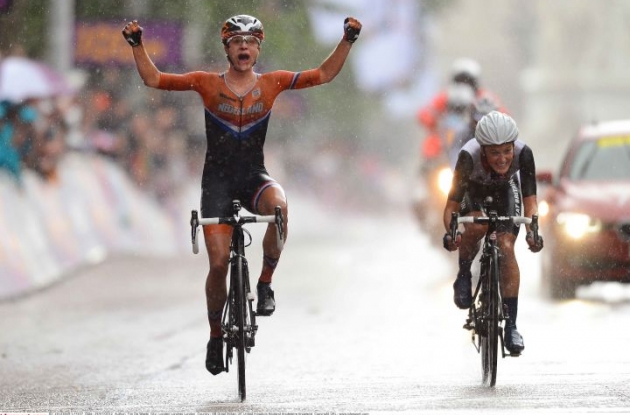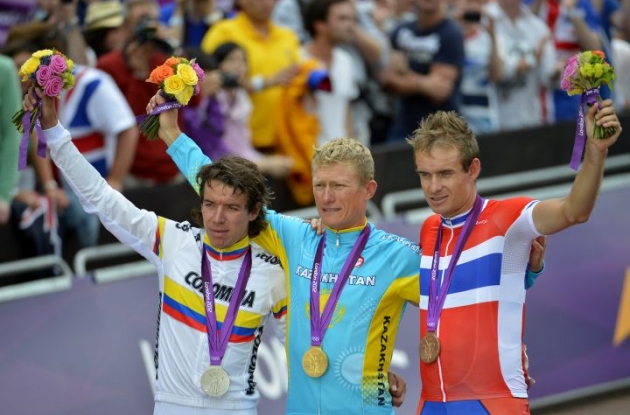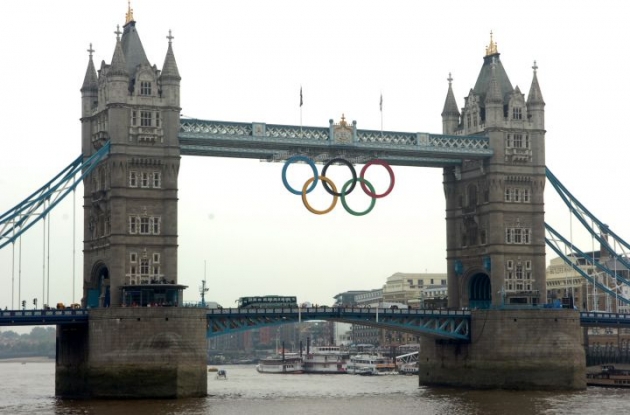The Olympics - Where Controversy Meets Technology
What's a professional bike race without a little bit of controversy?
The Olympic countdown finally ended. The road races of the 2012 London Olympics were this past weekend and they provided two days of exciting racing.
The London course was supposed to be one designed for the field sprinters. The fact smart money had England's Mark Cavendish as one of the favorites for the expected field sprint. However, Alexandre Vinokourov didn't get that memo and pulled a smart, strategic attack from his breakaway and then out-sprinted his companion Rigoberto Uran for the win. I knew what was going to happen next.
My Twitter time line exploded with people who ranged from, let's say "disappointed," to those who congratulated the Kazakhstan rider for his savvy move in those last couple hundred of meters, completely schooling Uran.
Let's have a quick history lesson on the controversial rider. Vino tested positive for blood doping in 2007, and as standard protocol with many pros that are popped, denied the offense but then retired in protest. However, he returned just as his ban was completed and never admitted to being guilty. That rubbed a lot of people the wrong way.
To further rub it in Vino won the 2010 Liege-Bastogne-Liege. To complicate matters even further, the Swiss magazine I'llustre published emails between Vinokourov and the second place finisher Alexandr Kolobnev that suggested Vino paid 100,000 Euros to the Russian to not sprint. The UCI reported that they were going to investigate the allegations, but as I did research for this post, I never found a conclusion by the governing body. Weird ...
Then in 2011 Vinokourov crashed in the Tour de France, breaking his femur and he retired again. But like an undead zombie, Vinokourov rose from the retired dead. You just can't keep Vino down.
Fast forward to 2012 and Vino is powering his neon red Specialized bike toward The Mall in London. I admit, I tweeted out an expletive. Not so much because it was quickly becoming evident that Vino was going to at least medal and I'm not a huge fan of his, but because USA's Taylor Phinney had been left behind. I'll say it - I was biased toward an American win. To be honest, the American cycling community needs a great win right now as the USADA case against seven-time Tour de France winner Lance Armstrong grinds along.
Part of my frustration was leveled at Vino because it bothers me that he has never apologized or explained himself. Vinokourov's response to his Liege-Bastogne-Liege win was that the 100,000 Euro payment was a private matter. The 2007 blood doping matter has never had closure. In real life you don't always get closure. Real life is complicated and messy. If you want closure all the time stick to watching television shows and movies. As a result Vino's continual denial has left a bad taste in a lot of people's mouths.
But I have to hand it to Vino. It was a gutsy "all in" attack and he deserved it by not being the strongest that day, but by being the smartest.
The women's race was a field sprint spoiler as well. A break went up the road, which contained Marianne Vos (Netherlands), Elizabeth Armitstead (England), Shelly Olds (USA) and Olga Zabelinskaya (Russian Federation). Olds flatted out of the break with just 30 kilometers remaining. A heartbreaking way to lose out on a chance for a medal.
Vos was the favorite for the sprint and she didn't disappoint, easily taking the win on The Mall. Armitstead was second and Zabelinskaya third. No controversy here. Vos was a well-deserved winner.
After watching both road races the Olympic course proved to be well-designed. Box Hill, while it didn't eliminate riders completely, did provide a launching pad for attacks. And the zig zag road provided a spectacular backdrop for the race.
The one complaint I saw from riders was that the crowds were so thick that they spilled out onto the road in some sections. Also someone's dog got loose and ran across the road and then back, miraculously not hitting any racers. Perhaps it was the Newfoundland dog from the Tour de France that took out Philippe Gilbert and was looking for his second chance to finish the job.
As a self-admitted tech geek the Olympics is a place where nations roll out their top secret equipment. The British road race squad AKA Team Sky Version 2.0 ride Pinarello bikes. However, they were on a plain black carbon fiber frame. The god-awful looking bikes were created by the UK Sports Institute for one thing and one thing only - to be ridden fast. Every tube and piece of equipment that was attached to the frame was sculptured for aerodynamics. This included a bulbous looking stem. Much like the mysterious "skunkworks project" which was formed during World War II as a think tank to create top secret projects, the bike's research and development came from the group called "The Secret Squirrel Club." Who says engineers don't have a sense of humor?
Joe Lindsey of the Boulder Report has the low-down on the bikes and states that if you want to impress your friends at the next group ride be prepared to write a cheque for $23,000 to own one of these.
The technology doesn't end there. The Giro Air Attack helmets were on several riders' heads, including Vos'. These helmets resemble something a skateboarder would wear. It looks round with a squared off rear section with minimal ventilation. The result, according to Giro, is a very fast helmet. Giro will make these lids available later this year. I expect to see them on the heads of my master category competitors as we do almost anything to stay fast to prevent Father Time from catching us.
Clothing was also a major aspect of the technology that was rolled out in London. Team Sky ... er ... I mean the British national team wore kits that were basically skinsuits with strategically placed seams that created a better air flow over the athletes. Very tricky stuff.
While there was some technological advances on display, there was one piece of modern technology missing - race radios.
While the ear pieces are a common sight in the Grand Tours, they are not allowed in the Olympics. Some could argue that this allowed for a more exciting race. Sure, that could be a factor, but also the male teams were limited to five riders, the female teams to four riders. This made controlling the bunch for over 200 kilometers a difficult task. I've been pro race radios since the UCI started their campaign to ban them entirely from the sport. They convey important information to the riders such as road conditions and of course race strategy. If riders didn't have radios they were be a lot more signaling for a director's team car to come up to the bunch for instructions. Instead the rider keys the mic and gets the information without a car blasting up the side of the road.
I know there are people out there who don't like race radios (my editor here at RoadCycling.com for one) and wants them banned. I say the genie is already out of the bottle and you can't cram it back in. The technology is there to create a safer environment for the riders, so why not use it? The argument against having a single race organizer's race radio that squawks alerts is that there are too many different languages in the peloton. By the time the official spoke all the various languages to say, "There's a roundabout in 1 kilometer" the peloton would have already passed it.
That said, I did enjoy the Olympic road races sans race radios and thought the racing was exciting and dynamic in both the women's and men's race. Women's racing showed, once again that it deserves more respect than what it is receiving. The 2012 London Olympics also showed that while technology may make the bikes ride faster, it sure doesn't make them pretty.
Follow Roadcycling.com on Twitter and Facebook to receive road cycling news updates automatically.










